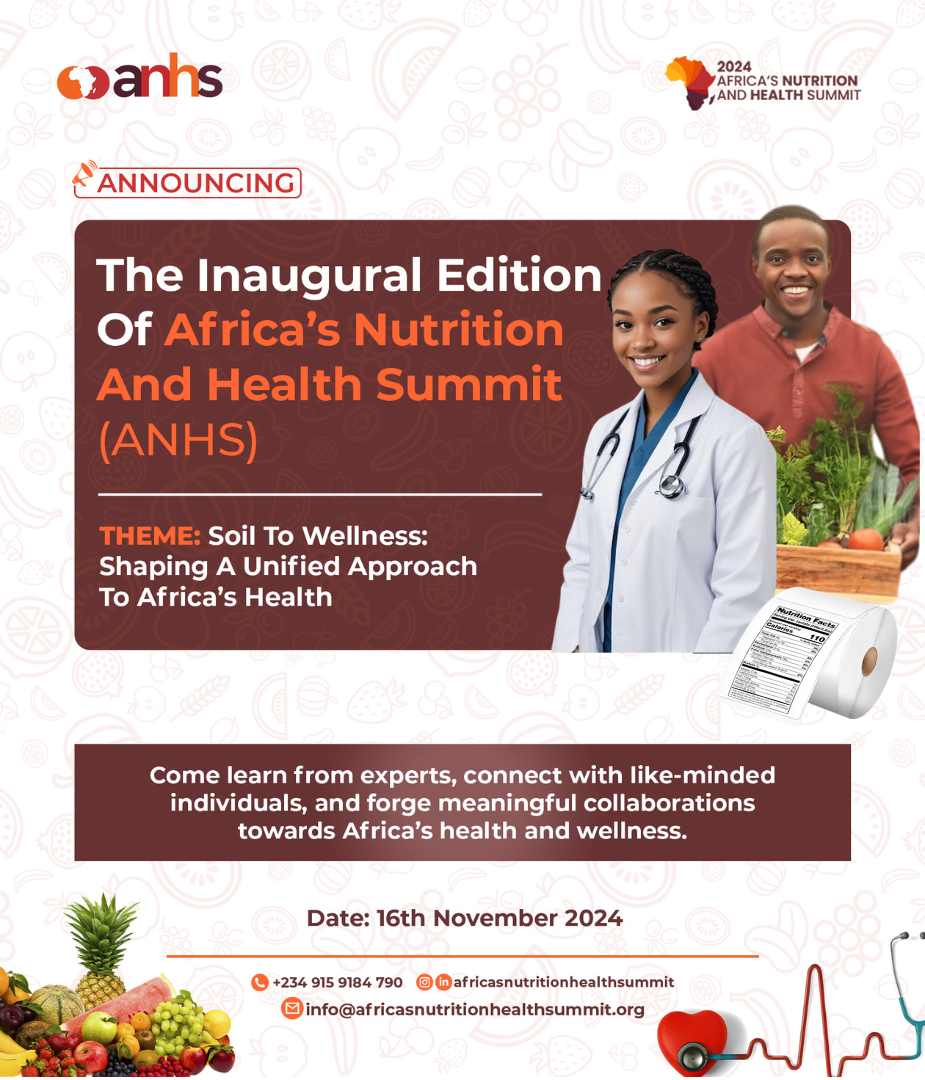Health
World Pharmacists Day- What Nigerian Pharmacists can bring to the table

Adaku Efuribe – A clinical Pharmacist/UN SDGs Advocate
“Safe and effective medicines for all” is the theme of this year’s World Pharmacists Day. (25th September 2019).The theme aims to promote pharmacists’ crucial role in safeguarding patient safety through improving medicines use and reducing medication errors.
“Pharmacists use their broad knowledge and unique expertise to ensure that people get the best from their medicines. We ensure access to medicines and their appropriate use, improve adherence, coordinate care transitions and so much more. Today, more than ever, pharmacists are charged with the responsibility to ensure that when a patient uses a medicine, it will not cause harm”, says FIP President Dominique Jordan.
I believe Nigerian pharmacists are better placed to safeguard patient safety through medicines optimisation and patient centered care. I have observed that this service tends to be lacking in our primary and secondary care facilities because there is a lack of multidisciplinary team approach in some settings. We need to start having these conversations and change the status quo.We need to embrace integrated healthcare. A lot of patients using clinical facilities, do not come in contact with a pharmacist, they do not get their medicines reconciled or reviewed, resulting to exposure to adverse drug-drug interactions and lack of concordance.
As long as we still have some clinicians in Nigeria diagnosing, prescribing, dispensing medication and ‘hiding’ the name of the medicine from the patient; duplication of therapy, adverse drug reactions and drug-drug interactions are inevitable.
Patients have the right to know the medicines they are taking to help achieve concordance and prevent medication errors and overdose.
Pharmacists led medicines review, reconciliation/ optimisation prevents medication errors & adverse drug reactions.
Medicines reconciliation is a process whereby patient’s medicines are reconciled as they move between different stages of healthcare, from primary – secondary care interface. Pharmacists are better placed and equipped to complete the medicines reconciliation process.
Pharmacist led medication review tends to be more in-depth ,capturing all the essence of patient centred care as it offers more time for the patient to ask medicines related questions which enhances concordance.
Medication reviews are needed to highlight issues of blood monitoring, therapeutic drug monitoring for medicines that require special monitoring; like methotrexate, diuretics, digoxin etc.
According to the Royal Pharmaceutical Society ‘Medicines optimisation represents that step change. It is a patient-focused approach to getting the best from investment in and use of medicines that requires a holistic approach, an enhanced level of patient centered professionalism, and partnership between clinical professionals and a patient’.
I believe medicines optimisation is about ensuring that patients receive the right kind of medication at the right time. It focuses on making patients get the best out of their medicines. Evidence has shown that a good number of medicines prescribed end up not being taken due to lack of concordance and compliance.
My experience with patient returned medication has shown that patients who do not understand the rationale for prescribed medication are more likely not to use the medication. Also medication used for preventative measures are at a higher risk of non-compliance as patients do not appreciate the benefits of taking such medication.
The gains of patient centered care cannot be overemphasised, all medical needs have to be tailored to the individual patient, considering their personal circumstances, other co-morbidities, and sometimes frailty comes into consideration for some elderly patients as well.
In some clinical settings, a lot of patients do not know what regular medicines they are taking or the reason why it has been prescribed, their indication or side effects to expect and they have never had their medication reviewed by a pharmacist since their long term condition was diagnosed.
Part of the role of the pharmacist in a clinical setting is to complete medicines reconciliation and medication reviews especially for patients taking regular medication for long term condition like Hypertension, Diabetes, Arthritis, Asthma etc.We need to create the enabling environment for this to be achieved.
For instance, a patent living in Kaduna with a history of hypertension, takes antihypertensive –Calcium channel blocker (CCB) – amlodipine tablets prescribed by his local doctor.
Patient travels to Lagos on official assignment and falls ill, patient gets admitted to a hospital ,diagnosed with very high blood pressure(HBP), patient receives treatment and gets discharged with three other medicines which includes another –CCB-Nifedipine , without being asked about his past medication history or told what medicines to stop /continue.
Patient continues to take two CCB –nifedipine and amlodipine at the same time and suffers hypotension (low blood pressure), which makes his condition worse. Patient is re-admitted to hospital in Kaduna, his medication is reviewed by a pharmacist, and he is told to stop Nifedipine and continue taking only Amlodipne.
Learning points- We need to utilise the expertise of pharmacists in all clinical settings.
A medication reconciliation process with a pharmacist during the hospital admission/discharge process in Lagos could have prevented the hypotension resulting from a duplication of therapy.
Evidence has shown that when patients understand the side effects of the medication they take, they are more likely to comply with the dosage regimen.
The gains of patient centered care cannot be overemphasized; all medical needs have to be tailored to the individual patient, considering their personal circumstance. Pharmacists are better placed to undertake this piece of work.
In the course of completing a medication review with one of my patients, It came to light why patient’s chronic obstructive pulmonary disease (COPD) was not well managed .This patient happened to be visually impaired and was unable to read the small typed instructions on the dispensing label and so assumed tiotropium capsules needed to be swallowed whole and not inserted into the inhalation device. After I offered education, guidance and support to this patient, the patient was able to use her inhaler as intended and her COPD symptoms were well controlled eventually. In this case a possible COPD exacerbation or even hospital admission/death was prevented.
Medication reviews are needed to highlight issues of blood monitoring, therapeutic drug monitoring for medicines that require special monitoring; like methotrexate, diuretics, digoxin etc.Annual blood tests are routinely checked because if dosage regimens are not adjusted or vital blood checks are not made, this may lead to increased harm to the patient or even death.
As we work towards achieving SDG3 and universal health coverage in Nigeria,
The following simple steps could help reduce the risk of medication errors and medicines related deaths in Nigeria:
- We have to develop and implement a nationwide strategy which will bring about the desired change in the healthcare system.
- We need to optimise integrated healthcare and patient centred care using a multidisciplinary team approach.
- We need to begin to put the patient at the centre of care and utilise the pharmacists expertise and input if we must provide safe and effective medicines for all.
The Ministry of health needs to develop and enforce policies around medicines reconciliation and medication reviews especially for patients with long term conditions who need regular medication to improve their quality of life and increase life expectancy and they must ensure that the ‘drug experts’ are given the opportunity to bring their expertise to the table.
Nigerian Clinicians need to work together to ensure adequate measures are put in place and everyone contributes their own quota towards effective healthcare delivery.
The role of the pharmacist in medicines optimisation and patient centred care cannot be overemphasized.
Article by Adaku Efuribe- A clinical Pharmacist/UN SDGs Advocate
Health
Inaugural Pan-African Nutrition and Health Summit set to shape a healthier continent

The inaugural edition of Africa’s Nutrition and Health Summit is set to convene on November 16, 2024, bringing together an extensive network of healthcare practitioners, nutrition experts, agricultural stakeholders, policymakers, and influential leaders from all over the continent under the theme, ” Soil to Wellness: Shaping a United Approach to Africa’s Health.” This groundbreaking summit aims to address the critical rise of non-communicable diseases (NCDs) across Africa through integrative approaches to preventive health, nutrition, and sustainable lifestyle practices.
This movement would explore holistic and practical solutions that unite stakeholders along the health and nutrition value chain, with a critical focus on how surging rates of NCDs like diabetes, hypertension, and obesity can be curbed via sustainable agriculture, improved food quality, and healthier lifestyle choices, to reshape our food and lifestyle culture, thereby laying a foundation for better health outcomes, for generations to come.
A Key Focus on Nutrition and Lifestyle Practices
The summit’s agenda will include panels on integrative approaches to nutrition and preventive health, the dual burdens of malnutrition and obesity, the impact of digital health in preventing diet-related diseases, and the role of sustainable agriculture in food quality. Our holistic approach strives to demonstrate how Africa’s diverse and rich agricultural resources can play a pivotal role in ensuring food security, balanced nutrition, and wellness for all citizens.
Call to Action
The inaugural edition of ANHS is especially relevant to anyone invested in the long-term health and wellness of the African continent. Such stakeholders are not limited to health professionals, nutrition experts, agricultural stakeholders, policy influencers, researchers, food producers, and processors. It is indeed a legacy-defining opening for businesses and community leaders interested in leaving their prints in the sands of policies that would advance health and wellness on the continent.
Participants will gain insights from leading experts and join the cause to champion Africa’s health by focusing on the most essential aspects of disease prevention and overall wellness. Now, more than ever, it is crucial to prioritize wellness at the societal level, addressing the connections between soil health, food quality, and sustainable practices that contribute directly or indirectly to healthy living.
Join us at the inaugural edition of Africa’s Nutrition and Health Summit on November 16, 2024, as we unite to shape a healthier continent – one that intentionally harnesses her resources and expertise to combat non-communicable diseases.
Register here to attend ANHS 2024
For more information, press inquiries, or partnership opportunities, please contact:
RSB
Official Branding Partner of ANHS
Health
Dr. Jesupelumi Adenihun: Adopting a lifestyle of sustainable health practices with food

Dr. Jesupelumi O. Adenihun (Image: Supplied)
You have likely heard the saying, “You are what you eat,” and it couldn’t be truer. What we consume plays a far greater role in our health than many of us realize. Over time, our eating habits can either support our body’s natural healing processes, leading to improved health and vitality, or contribute to nutrient deficiencies, inflammation, and even chronic diseases.
What this means is, our eating habits over time sets off a series of chain reactions in our bodies that impact our overall well-being. The good news, however, is that by consistently making the right food choices, we can put ourselves on the path to a state of good health and well-being. While this might sound daunting at first, it is often the small, consistent actions that yield the best results. Let’s take a look at 10 simple but effective habits you can begin to cultivate for better health and adopt as lifestyle practices:
- Substitute soda with water: No beverage is more refreshing or beneficial than plain water. It hydrates, cleanses, and confers numerous health benefits.
- Snack on nuts and seeds: When you are craving a snack, go for nuts or seeds, unless you have an allergy. They are nutrient-dense and can also be satisfying.
- Opt for grilled or baked over fried: Choosing grilled or baked foods helps reduce unhealthy fat intake without compromising on flavor. This also helps reduce the risk of developing high cholesterol levels which is a cardiovascular risk.
- Enjoy homemade smoothies over sugary drinks: When time permits, make homemade smoothies making use of reliable recipes. If you are short on time, consider vendors who provide fresh, nutrient-packed options.
- Practice mindful eating: Mindful eating means being fully present during meals, savoring each bite, and listening to your body’s signals. Eating mindfully is a game changer for a lot of people.
- Be well-informed about what you consume: Whether it’s food or drinks, it is essential that you stay conscious of what’s in your food and drinks. Many packaged products contain hidden sugars that the body doesn’t exactly need. Always take a moment to check the ingredients.
- Add more vegetables to your plate: Think beyond the usual veggies—some varieties exist which also depends on your geographical location. Be open and willing to explore new options and add color to your meals.
- Prioritize lean proteins: Not all proteins are created equal. Make lean protein choices and consider plant-based options to support your overall health.
- Use natural spices over salt-laden seasonings: High salt intake is known to be a contributor to heart-related conditions like hypertension. Opt for natural herbs and spices to add flavor without carrying on health risks.
- Stay physically active: Find an activity you enjoy and can commit to, whether you are at home or on the go. Consistency is key. Also seek the counsel of a coach if you need to.
Remember, true wealth lies in your health. Let each meal choice you make be a step toward a healthier, more vibrant life. Eat to wealth, health is wealth.
Written By: Dr. Jesupelumi O. Adenihun (Nutrition Coach, Preventive health care specialist).
Health
Bridging The Gap Between Menstrual Health and Mental Health in Africa

Menstrual health is not just about periods; it’s about breaking the cycle of exclusion and empowering the future of Africa – one girl at a time.
Empowering women and girls who menstruate worldwide starts with breaking the silence around periods. Eno, a 14-year-old girl from a remote community in the south, shrinks when her period arrives each month. Shame and fear are a constant part of her experience. “At school, whispers follow me. They call me ‘dirty’ because I can’t afford pads. I use the white piece of cloth my mother gave me and the extra layer of pad I had sewn on our neighbor’s machine using pieces from his shop.” Eno’s story, though heartbreaking, is far from unique. Across Africa, millions of girls and women face a hidden crisis: period poverty.
Period poverty refers to the inability to afford and access menstrual products, sanitation and hygiene facilities, and education and awareness to manage menstrual health. Globally, more than two billion people around the world menstruate monthly.
Menstruation, a healthy and natural biological process continues to be shrouded in silence and stigma across many parts of Africa. This silence perpetuates a cycle of neglect and exclusion, where the menstrual health needs of women and girls are ignored, leading to significant physical and mental health issues.
Daily, women and girls are unable to afford sanitary pads, forcing them to resort to unhygienic alternatives like old rags, leaves, old clothes, cotton wool, toilet paper, newspaper, and make-shift hygienic pads. This lack of access not only affects their physical health but also their mental well-being, as they experience anxiety, shame, and isolation during their menstrual cycles. With limited to no access to safe water and sanitation to manage their menstrual health and hygiene, these women and girls who cannot afford menstrual products do not live well within their rights and freedoms as their menses interrupt their day-to-day flow.
Human-Centered Stories
To truly understand the impact, we must listen to the voices of those affected. Nike, a 15-year-old girl from a rural community in Ogun State shared, “I have to stay home when I have my period because I don’t have pads. I miss out on school and feel ashamed.” Rukkayat, another young woman from a community in Abuja stated, “The stigma around menstruation is so strong that I can’t even talk to my teachers about it. It feels like a dirty secret. I feel dirty walking around my school. So, I’d rather stay at home when I’m on my menses to endure the pain and take care of myself.” These anonymous quotes reflect a common reality for many girls and women across Africa, highlighting the urgent need for change.
Addressing Stigmas and Period Poverty
Period poverty stems from persistent stigmas around menstruation. These stigmas include the belief that menstruating women are impure, leading to their exclusion from everyday activities and social interactions. Such beliefs not only undermine women’s confidence but also reinforce gender inequality. Periods, already a source of physical discomfort, become a breeding ground for anxiety, shame, and isolation. This can lead to depression, decreased self-esteem, and a reluctance to seek help. The link between menstrual health and mental health is undeniable.
To combat these stigmas, sensitization initiatives, and project outreaches need to provide menstrual products and education. These programs will empower girls with knowledge and resources, breaking the silence and changing societal attitudes toward menstruation.
Breaking the Cycle: Investing in Solutions, Empowering Futures
So, how can we bridge the gap between menstrual health and mental health by showing one can’t do without the other? By recognizing that menstrual health is intrinsically linked to mental well-being, we can create holistic approaches that address both.
- Combat Stigma Through Education: Open conversations are key. Educational programs that address menstrual hygiene and dispel myths can empower girls and communities. Schools and communities should provide comprehensive menstrual education that includes mental health support.
- Invest in Sustainable Solutions: Supporting the development and distribution of affordable, reusable menstrual products is crucial. Access to menstrual products should be seen as a basic human right, and efforts should be made to ensure that all girls and women have the necessary resources.
- Build Sanitation Infrastructure: Safe and private sanitation facilities in schools and public spaces are essential for dignity and hygiene management.
- Champion Advocacy: Investing in menstrual health advocacy at the local and national level can lead to policy changes that prioritize girls’ needs. From providing dignity kits to advocating for safe and private facilities, menstrual hygiene management is crucial for their well-being and development. Through advocating for women and girls, we can ensure every girl has the knowledge and resources she needs to thrive.
By investing in menstrual health, we invest in a future where girls like Eno, Nike, and Rukkayat can access education, participate fully in life, and thrive. Through increased conversations and heartfelt advocacy, the Going North Project initiative is addressing the urgent need for quality healthcare, education, and the eradication of period poverty through targeted outreach programs.
The Going North Project aligns with the Sustainable Development Goals (SDGs) of Education, Health, and Gender Equality, which are crucial for fostering a brighter future and empowering girls – one at a time.
Let us address the urgent need for accessible menstrual health resources and education, highlighting how this issue impacts individuals globally. This advocacy inspires and reminds us that menstrual equity is essential for a just and healthy world. Together, we can break the stigma and ensure menstrual equity for all.
-

 Afripreneur3 days ago
Afripreneur3 days agoMeet Datari Ladejo, the digital strategist helping brands thrive in the digital economy
-

 Afripreneur9 hours ago
Afripreneur9 hours agoCreativity, Data, and Innovation: Tutu Adetunmbi’s Vision for Africa’s Marketing Future with Stamfordham
-

 Press Release1 day ago
Press Release1 day agoThe 234 Venture Vault Launches Tech Startups and Talents Hunt Across Nigerian Tertiary Institutions
-

 Afripreneur9 hours ago
Afripreneur9 hours agoMeet Nzinga B. Mboup, a Senegalese architect committed to climate-friendly construction for African cities















